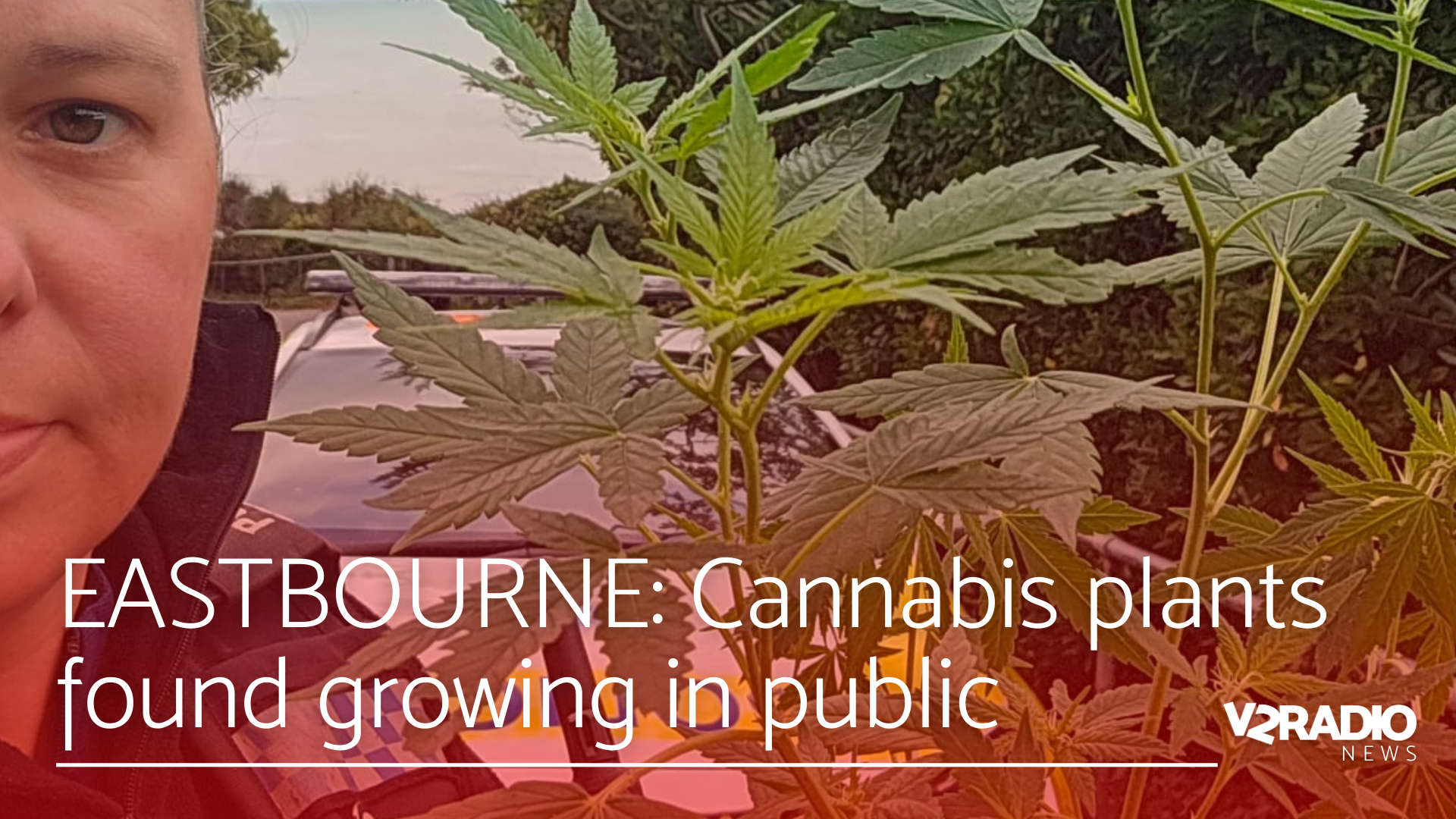
Police in Eastbourne have removed several suspected cannabis plants found growing in a seafront flowerbed.
Three teenagers spotted them and told the police.
In a statement released by police in the town on social media, they said "Following a call from three vigilant teenagers who spotted something unusual among the flowerbeds along King Edward’s Parade, officers attended, confirmed their suspicions, and relocated the plants to a more appropriate setting.
While we appreciate the enthusiasm for gardening, public spaces aren’t really the right place; we’re pleased to report the gardens have now returned to their usual, law-abiding blooms.
If you’d like to discuss more appropriate growing options, or chat about fertilizer preferences, we’re only too happy to chat and nip things in the bud.
Residents are encouraged to report suspicious activity to Police at the time online or by calling 101.
In an emergency always call 999."
For people living in Eastbourne, though, the discovery of cannabis will come as no real surprise; this very fragrant plant can be smelt in many areas of this seaside town almost 24/7.
The NHS and Public Health England warn about the potential dangers of cannabis use, which can affect both mental and physical health.
In the short term, cannabis can impair coordination and reaction times, increasing the risk of accidents. It can also cause anxiety, panic attacks, and memory problems, with users sometimes experiencing distorted perception of time and distance.
Regular or long-term use can lead to addiction and withdrawal symptoms such as irritability, sleep issues, and cravings. Health authorities say frequent use, particularly of high-strength cannabis, may increase the risk of psychosis, anxiety, and depression.
There are also physical risks, including breathing problems caused by smoking the drug, and potential long-term effects on memory and motivation.
Experts warn that teenagers, people with a family history of mental illness, and pregnant women face higher risks, as cannabis can affect brain development and may harm unborn babies.

 'Safer Steps Community Run' takes to the road in Bognor Regis
'Safer Steps Community Run' takes to the road in Bognor Regis
 Second arrest made in Peacehaven mosque arson investigation
Second arrest made in Peacehaven mosque arson investigation
 Man arrested in Hassocks rape investigation
Man arrested in Hassocks rape investigation
 Lancing man jailed for raping teenager and harassing woman
Lancing man jailed for raping teenager and harassing woman
 Free trees available for tree planting projects in the Chichester District
Free trees available for tree planting projects in the Chichester District
 Portsmouth MP celebrates return of maintenance grants for local students
Portsmouth MP celebrates return of maintenance grants for local students
 Aldwick house fire sparks vape warning
Aldwick house fire sparks vape warning
 Boy, 17, convicted of manslaughter of man in Littlehampton
Boy, 17, convicted of manslaughter of man in Littlehampton
 Rosie Jones subjected to abuse on train from Brighton to London
Rosie Jones subjected to abuse on train from Brighton to London
 DJ workshops for people with severe mental illness extended after successful first year
DJ workshops for people with severe mental illness extended after successful first year






